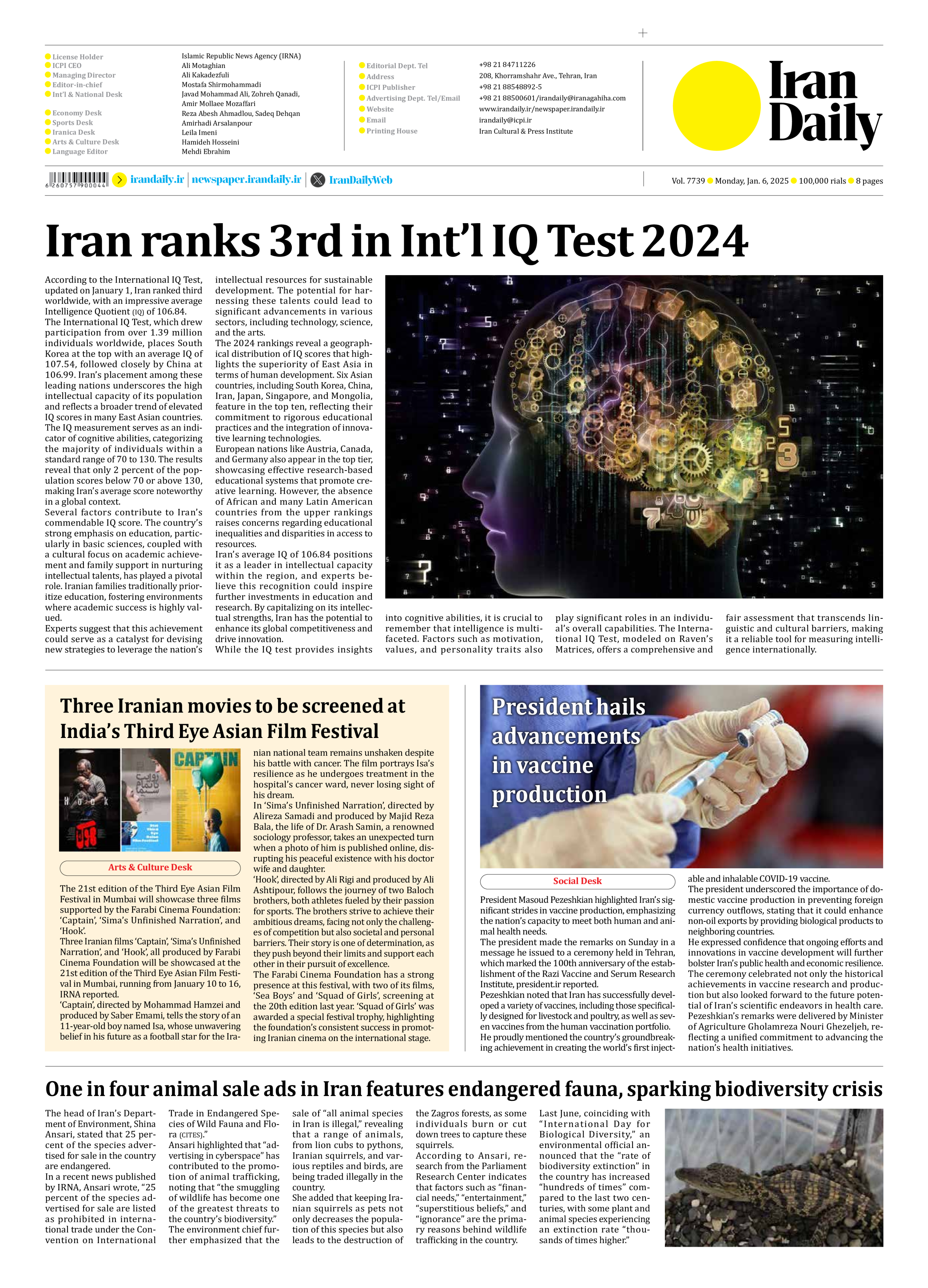
Copy in clipboard...
Iran ranks 3rd in Int’l IQ Test 2024
The International IQ Test, which drew participation from over 1.39 million individuals worldwide, places South Korea at the top with an average IQ of 107.54, followed closely by China at 106.99. Iran’s placement among these leading nations underscores the high intellectual capacity of its population and reflects a broader trend of elevated IQ scores in many East Asian countries.
The IQ measurement serves as an indicator of cognitive abilities, categorizing the majority of individuals within a standard range of 70 to 130. The results reveal that only 2 percent of the population scores below 70 or above 130, making Iran’s average score noteworthy in a global context.
Several factors contribute to Iran’s commendable IQ score. The country’s strong emphasis on education, particularly in basic sciences, coupled with a cultural focus on academic achievement and family support in nurturing intellectual talents, has played a pivotal role. Iranian families traditionally prioritize education, fostering environments where academic success is highly valued.
Experts suggest that this achievement could serve as a catalyst for devising new strategies to leverage the nation’s intellectual resources for sustainable development. The potential for harnessing these talents could lead to significant advancements in various sectors, including technology, science, and the arts.
The 2024 rankings reveal a geographical distribution of IQ scores that highlights the superiority of East Asia in terms of human development. Six Asian countries, including South Korea, China, Iran, Japan, Singapore, and Mongolia, feature in the top ten, reflecting their commitment to rigorous educational practices and the integration of innovative learning technologies.
European nations like Austria, Canada, and Germany also appear in the top tier, showcasing effective research-based educational systems that promote creative learning. However, the absence of African and many Latin American countries from the upper rankings raises concerns regarding educational inequalities and disparities in access to resources.
Iran’s average IQ of 106.84 positions it as a leader in intellectual capacity within the region, and experts believe this recognition could inspire further investments in education and research. By capitalizing on its intellectual strengths, Iran has the potential to enhance its global competitiveness and drive innovation.
While the IQ test provides insights into cognitive abilities, it is crucial to remember that intelligence is multifaceted. Factors such as motivation, values, and personality traits also play significant roles in an individual’s overall capabilities. The International IQ Test, modeled on Raven’s Matrices, offers a comprehensive and fair assessment that transcends linguistic and cultural barriers, making it a reliable tool for measuring intelligence internationally.







